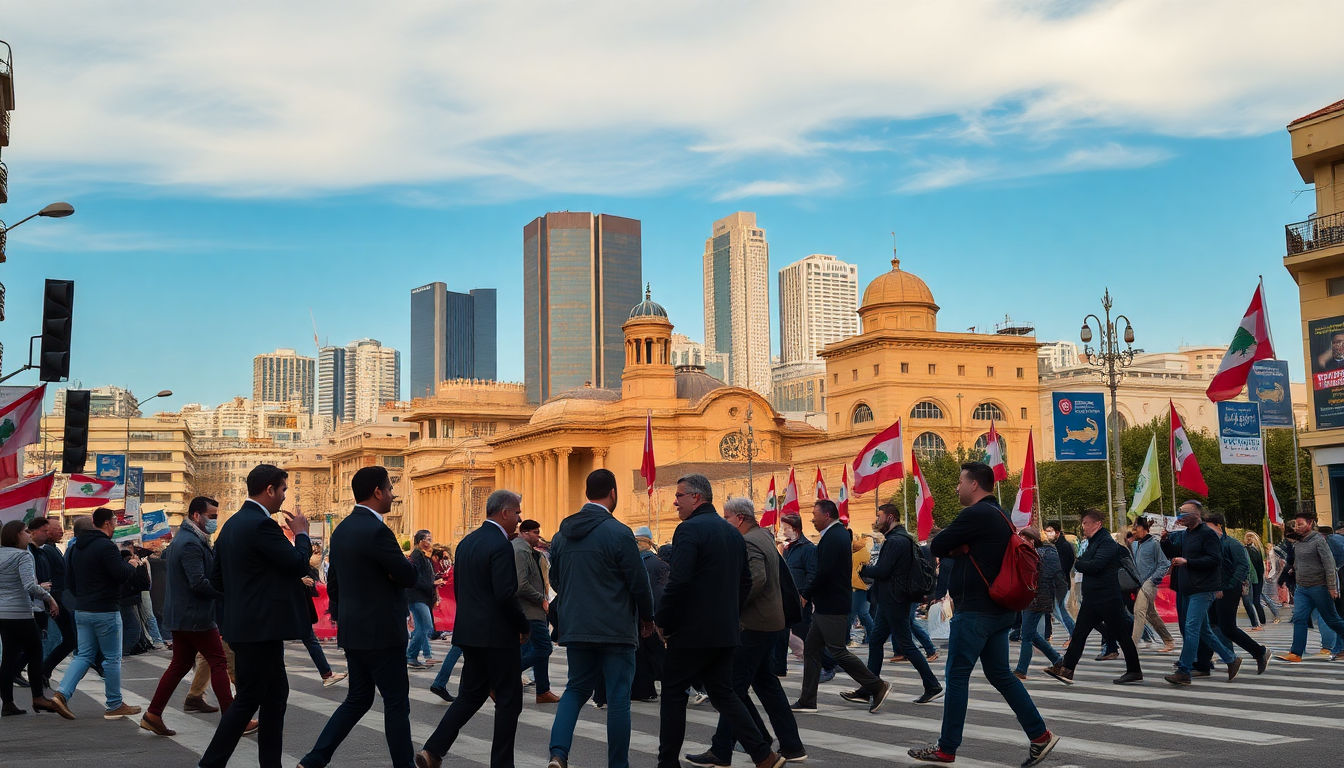Table of Contents
The ongoing debate about Hezbollah’s disarmament is anything but straightforward. It sheds light on the complex and often turbulent political landscape of Lebanon. As international and local pressures mount, Hezbollah has made its position crystal clear: any talk of disarmament must first tackle Israel’s withdrawal from Lebanese territory and the release of Lebanese prisoners.
So, what does this mean for the future of Lebanon? Let’s explore the current situation and what it could imply for the country moving forward.
What’s Happening in Lebanon Right Now?
Hezbollah finds itself under the microscope as protests erupt in Beirut, with supporters rallying firmly against any potential disarmament.
These demonstrations are fueled by increasing pressure from the United States on Lebanon’s government to take decisive action regarding Hezbollah’s arms. But why are supporters so worried? Many fear that disarming Hezbollah could weaken their political standing and compromise their security in a region already teetering on the edge of instability.
Hezbollah leader Naim Qassem has openly stated that the group feels compelled to consider disarmament under the looming threat of losing crucial reconstruction funds. This sentiment strikes a chord with many in Lebanon, who regard Hezbollah as an essential player in the national resistance against Israel.
The scars of recent conflicts run deep; last year, Hezbollah emerged from a war with Israel that significantly impacted its military leadership and left countless supporters displaced.
Amidst all this, Lebanon’s new political leadership is trying to assert itself.
However, they tread carefully when it comes to taking firm action against Hezbollah, balancing local governance with external demands in a delicate dance.
Hezbollah’s Conditions for Disarmament Talks
When it comes to disarmament discussions, Hezbollah has made it abundantly clear: any conversation must first address several critical issues.
These include Israel’s withdrawal from Lebanese soil, the release of Lebanese prisoners, and an end to hostilities. This stance emphasizes that disarmament cannot happen in isolation; it must be part of a broader peace process.
But the Lebanese government is caught in a tricky situation. There’s a push for disarmament from various factions within the parliament, yet any aggressive move against Hezbollah could spark further violence and political instability. Political leaders recognize the need for a united approach to arms control, especially given the sectarian implications that could jeopardize national peace.
Historically, Lebanon has seen violent clashes over similar issues, like the 2008 conflict that erupted over government decisions regarding Hezbollah’s telecommunications network. This history looms large, as the government aims to avoid repeating past turmoil.
What Does Disarmament Mean for Lebanon?
The question of Hezbollah’s disarmament goes beyond military implications; it’s intricately woven into the socio-political fabric of Lebanon. The group has long been a powerhouse in Lebanese politics, boasting substantial military capabilities and strong backing from the Shia community. Despite recent challenges, Hezbollah still holds a strategic position in society, complicating any potential disarmament efforts.
Political leaders have begun to see the urgent need for a clear roadmap toward disarmament, especially with escalating international pressure. Reports suggest that the Lebanese army has taken control of several Hezbollah sites, hinting at a possible shift in the balance of power. Yet, the road ahead remains riddled with obstacles, as any decision to disarm Hezbollah could ignite a political crisis, further fracturing an already divided political landscape.
As Lebanon navigates these intricate issues, the stakes couldn’t be higher. The government’s commitment to disarming Hezbollah could mark a pivotal moment in the nation’s journey, potentially leading to increased stability or spiraling into further conflict. Observers are closely watching how these dynamics will play out in the coming months as the pressure for action continues to escalate. What will Lebanon’s future hold? Only time will tell.





